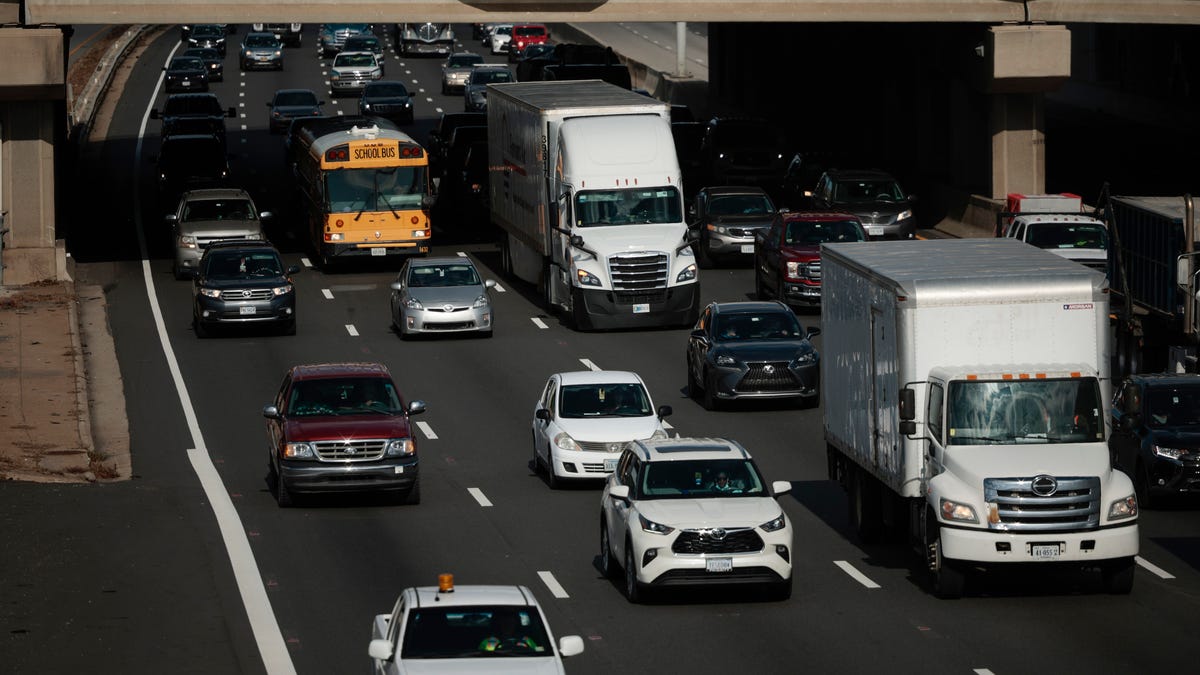 |
| |
| |
| |
| |
| |
| |
| Happy Monday, OnPolitics readers! |
| As the year winds down, Congress still has a list of things it needs to do before 2021 ends. |
| Most notably, Congress has until Friday to avoid a government shutdown. |
| In late September, President Joe Biden and Congress averted a shutdown hours before a midnight deadline by funding the government until the beginning of December. |
| What does a shutdown mean? A shutdown would furlough hundreds of thousands of nonessential federal employees, forcing them to take time off without pay. |
| More items on the to-do list: Lawmakers still need to take action on raising the debt ceiling, the 2022 National Defense Authorization Act, voting rights, a China competitiveness bill and the fate of Biden's Build Back Better Act in the Senate. |
| It's Amy and Mabinty with today's top stories. |
| Want this news roundup in your inbox every night? Sign up for OnPolitics newsletter here. |
This new infrastructure measure could stop drunk drivers |
| Speaking of Biden's infrastructure plans, one provision tucked into the $1 trillion package that Biden signed into law earlier this year could prevent drunk drivers from getting on the road. |
| Green-lighting new technology: The new law requires the National Highway Traffic Safety Administration create a rule mandating that new vehicles be equipped with advanced technology to prevent drunken and impaired driving, beginning no later than 2026. |
| The legislation leaves it to the NHTSA to decide which technology to require, but that could include any device that prevents a driver from operating a newly manufactured vehicle by identifying signs of impairment or detecting a blood-alcohol level above the legal limit. |
| How effective could this provision be? Advocates said the change could save thousands of lives lost in drunken driving crashes every year. Drunken driving is one of the leading causes of death in motor vehicle crashes – more than 10,000 people killed each year. |
Real quick: stories you'll want to read |
| |
Ghislaine Maxwell faces accusers in court |
| Opening arguments begin Monday in the federal sex trafficking trial of Ghislaine Maxwell, who is charged with helping her longtime companion, financier Jeffrey Epstein, recruit, groom and exploit girls as young as 14 years old for sexual abuse. |
| The alleged incidents ran from 1994 to 2004 in locations ranging from an Upper East Side residence in New York to an estate in Palm Beach, Florida, to a ranch in Santa Fe, New Mexico, to a residence in London. |
| The question for the jury will be whether the globe-trotting Maxwell, who turns 60 on Christmas Day, procured underage girls for Epstein, knowing he would abuse them. |
| Maxwell faces six charges: conspiracy to entice minors to travel to engage in illegal sex acts, enticement of a minor to travel to engage in illegal sex acts, conspiracy to transport minors with intent to engage in criminal sexual activity, transportation of a minor with intent to engage in criminal sexual activity, sex trafficking conspiracy and sex trafficking of a minor. |
| What's her defense? Maxwell has denied all charges. Her expert witnesses are likely to challenge the reliability of accounts decades after the alleged incidents occurred. The witnesses include a forensic psychiatrist who testified against cannibal Jeffrey Dahmer and a criminology professor who testified at the trial of sex offender Harvey Weinstein. |
| You won't be able to stream the trial: Because it's in a federal court, cameras and other recording devices won't be allowed during Maxwell's trial. |
| It's Cyber Monday! Our Reviewed team has compiled a list of all the best deals today, and don't forget to check out USA TODAY's own subscription sale. — Amy and Mabinty |
| |
| |
| |
| |


No comments:
Post a Comment